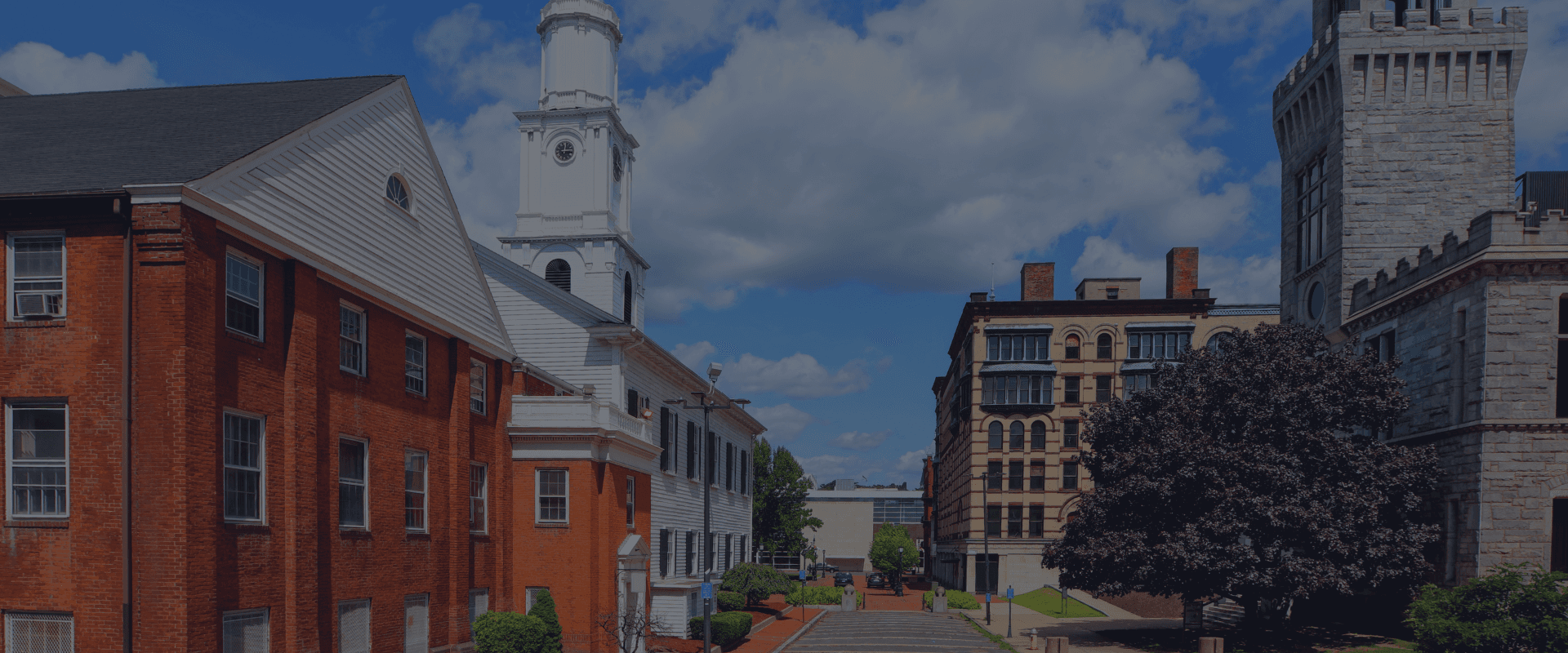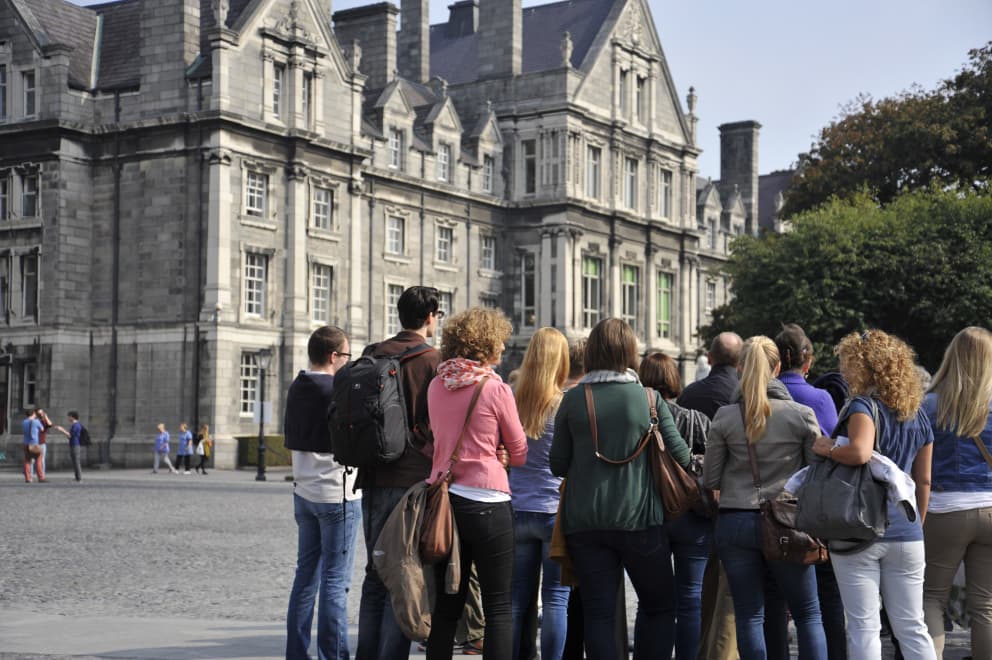Your Guide to Early Applications to the Ivy League

Summary
Submitting an early round application is a well established strategy in Ivy League admissions, one that typically gives applicants an edge, at least statistically speaking. In addition to enjoying a more favorable acceptance rate at many top schools, early applicants also enhance their profile by demonstrating strong commitment and interest.
With excellent academics, expansive alumni networks, unparalleled research opportunities, and a rich tapestry of extracurricular activities, the Ivy League stands as the top choice for many students.
As acceptance rates decline, applicants are actively seeking strategies to maximize their admission prospects. One highly effective approach is through early applications.
What Are Early Applications?
Early applications are essentially a way for you to submit your college applications ahead of the regular deadline, giving you a head start in the competitive world of college admissions.
There are three types of early applications:
1. Early Decision (ED)
Think of Early Decision as the express lane to your dream school.
When you opt for Early Decision, you're making a commitment – if you're accepted, you're bound to attend that particular college. It's a bold move that showcases your unwavering dedication to a specific institution. Just be sure you've done your homework and found your true academic love before taking this plunge.
2. Early Action (EA)
Early Action is like the middle ground between Early Decision and the regular application process.
With Early Action, you get to submit your application early, but you're not locked into attending that school if accepted. It's a fantastic option if you want to show your interest to several colleges without making a binding commitment just yet.
3. Restrictive Early Action (REA)
Now, let's throw a curveball into the mix – Restrictive Early Action. This type is similar to Early Action, but with a twist. Some colleges have a “restrictive” clause, meaning you can't apply to other private institutions under their early programs.
It's a bit like having an exclusive date – you're free to mingle with other colleges, but you're keeping your options limited within a certain circle.
Early Application Types
| Application Type | Binding? | Application Deadline |
|---|---|---|
| Early Decision | Yes - you have to enroll and withdraw all other offers | 1 November |
| Early Action | No | 1 November |
| Restrictive Early Action | Yes - only for other early applications. You can still apply for through regular decision | 1 November |
Ivy League Acceptance Rates: Regular vs Early Applications
Applying early demonstrates not just interest but a deep commitment.
Early applicants often have a higher acceptance rate compared to their counterparts in the regular pool. It's like being first in line for the hottest concert – you secure your spot before the masses flood in.
While exact rates can vary from year to year, the general trend is that Ivy League Early Decision acceptance rates often hover above the regular acceptance rates. Early Action acceptance rates, though not binding, also tend to be more favorable than the regular pool.
Applying early can be your strategic advantage. It shows you're not just dipping your toes; you're diving headfirst into the academic waters.
ADMISSIONS RATES FOR EARLY VS REGULAR APPLICATIONS
| SCHOOLS | OVERALL ADMISSIONS RATES (EARLY AND REGULAR ROUNDS COMBINED) | EARLY ROUND ADMISSIONS RATES |
|---|---|---|
| Harvard | ~3% | ~8% |
| Brown | ~5% | ~13% |
| Yale | ~5% | ~11% |
| Duke | ~6% | 21% |
| Dartmouth | ~6% | ~20% |
Which Ivy League Schools Accept Early Applications?
All ivy league schools accept early applications. More than half of the Ivy League accept Early Decision applications, while the remaining schools accept Restrictive Early Action.
It's noteworthy that, as of 2023, none of the Ivy League schools have adopted the Early Action model.
Which Ivy League Schools Accept Early Applications?
| University | Early Application Type |
|---|---|
| Cornell | Early Decision |
| Columbia | Early Decision |
| U Penn | Early Decision |
| Dartmouth | Early Decision |
| Brown | Early Decision |
| Harvard | Restrictive Early Action |
| Yale | Restrictive Early Action |
| Princeton | Restrictive Early Action |
| Stanford | Restrictive Early Action |
When Are Ivy League Early Decision and Early Action Deadlines?
The early application deadline for both Early Decision and Restrictive Early Action for all Ivy League schools is 1 November.
All Ivy League schools announce the early applications results in mid-December.
These are the dates listed on all Ivy League websites as of the date this blog is published.
Ivy League Key Dates
| University | Early Application Deadline | Early Application Results |
|---|---|---|
| All Ivy League Schools | 1 November | Mid-December |
Expert Insights
At Crimson Education many of the students in our global network have had exceptional success receiving offers from top-tier colleges and universities, by collaborating closely with one or more of our highly qualified college admissions consultants.
The success of our EA/ED applicants in particular says a lot about how an effective, personalized EA/ED strategy can truly boost your odds for admissions — as we have had more than 340 early admits receive offers to the US Top 50 Universities, including 60+ success stories at Ivy League schools and 20+ admits to Stanford and MIT.
Early Application: Accepting the Challenge
As you can see an Early Round application is worth considering as a top strategy to get into a selective university, but there's a challenge you need to accept. Putting together strong applications with carefully crafted essays is a handful on its own. Being ready to submit one or more applications two or three months ahead of Regular Decision deadlines is an even bigger commitment.
At Crimson, we've learned from experience that applying in an early round often gets better results, especially when paired with a strong holistic approach.
Ayaka's Challenge
Ayaka is just one example. When Ayaka came to Crimson, she had a lot going for her academically, but her extracurriculars, while rich, covered lots of subjects and interests.
Her Crimson advisors determined that Ayaka needed to find a way to present a more coherent profile in her college essays and apply early to increase her chances of success, especially since Brown University, her top choice, was very selective.
At first Ayaka wasn’t sure she was up for the challenge — Brown had a very rigorous application process, adding to the difficulty of finishing in time to meet the early deadline.
In the end, with insights from her Crimson Advisor for a strong holistic admissions strategy, a patient essay coach to bounce ideas off of, and a Crimson team member to help her track timelines and admissions requirements, Ayaka submitted a stellar application to Brown University in time for the early round.
Ayaka was a little surprised but very excited when she got accepted to Brown with no regrets about stepping up to meet the early deadline:
My strategist helped me out with my schedule and kept me way ahead of my deadlines, so while my peers at school were struggling right before the deadlines, I was very calm and relaxed about the application process,” Ayaka says. “It would’ve been a much more stressful application process without Crimson.
Ayaka’s story is just one of many in which a strong and personalized application strategy along with early round submission delivered a great outcome.
As you navigate your own decision, consider getting input from your high school guidance counselor, other trusted and informed adults, or reach out to a Crimson Education Advisor with expertise in Ivy League admissions processes.
-
You already feel confident you’ve identified your top-choice school
-
Your transcripts through the end of grade 11 already demonstrate academic rigor and good grades (as early admissions applicants won’t have any senior-year fall transcripts to submit)
-
Meeting the early deadline (typically Nov. 1) doesn’t preclude you from submitting a well prepared and thoughtful application
-
If applying ED, you’ve fully reviewed and considered how ED commitments will limit your school choices and financial aid options
Working With a Counselor
In many circumstances, applying early can significantly elevate your chances of admission, often with the biggest boost at the most selective schools. But keeping up with Early Round timelines and crafting a holistic approach to your application can be challenging.
Working with a counselor who can provide individualized insights and support along the way can make the process more fun, rewarding, and manageable. And, it can further increase your odds for success! In fact, students working with Crimson are 7x more likely to gain admission to their dream university.
Final Thoughts
Navigating your early application strategy will require you to consider many overlapping factors, and settling on the best strategy for your goals can be a much more nuanced task than it may appear to be.
However, if you are applying to some highly competitive schools, and there's a reach school in particular that you truly want to attend, you'll certainly want to see if an early application strategy makes sense or not.
The good news is that Crimson can help.
We work with each student, using a tailored approach to college admissions consulting and helping every student build a genuine and impactful admissions profile, finalize their school list, and pursue the best possible application strategy.
Thanks to our unique story and vision, a deep bench of consulting talent, and a laser focus on student growth and getting results, we've helped thousands of students achieve admission to top-tier institutions such as the Ivy League, Stanford, Duke, and UChicago.
If you're ready to take your college application to the next level, book a free consultation with Crimson Education today and be sure to see our line up of admissions-related events and webinars.


